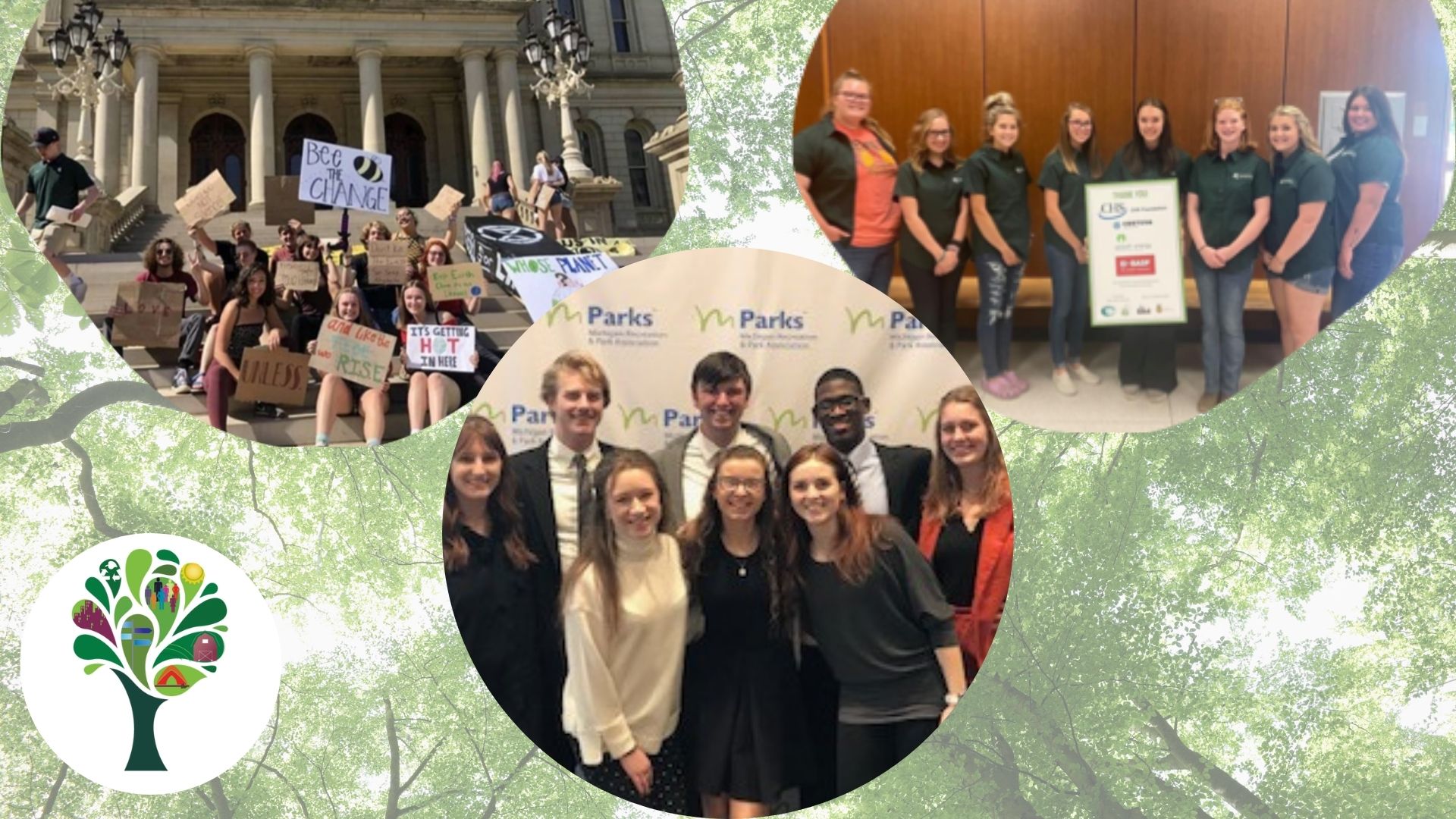Why pursue a degree in CSUS?
WHAT IS A SUSTAINABILITY DEGREE?
The undergraduate program in Community Sustainability is designed to equip you with the knowledge and skills required to address current environmental issues. Community Sustainability offers three majors- Agriculture, Food, and Natural Resources Education; Environmental Studies and Sustainability; Sustainable Parks, Recreation and Tourism- that provide unique preparation for different career pathways within the broader sustainability careers umbrella. Whether your interest lies in food systems, education, parks and outdoor recreation, or environmental policy, our majors offer a versatile framework to understand the complexities of human-environment interactions.
WHAT DO I LEARN IN A SUSTAINABILITY DEGREE PROGRAM?
To solve complex global environmental problems requires combining knowledge and skills from natural sciences and social sciences to provide a comprehensive understanding of sustainable systems. The core of Community Sustainability’s undergraduate curriculum focuses on understanding ecological systems, the impact of human activity on these systems, and the social and economic structures that either promote or hinder long-term sustainability. You'll learn how sustainability principles can be applied in various sectors including energy, agriculture, water management, and recreation, to name a few.
An undergraduate major in sustainability encompasses various disciplines, ensuring you acquire a holistic understanding of how systemic change can be achieved. In your degree program, you will explore key areas ranging from scientific principles, to social systems and governance frameworks that play a crucial role in sustainability efforts.
Our undergraduate programs prepare the next generation of learners, thinkers, and doers.
Through your studies, you're expected to develop critical thinking and problem-solving skills that are vital in creating sustainable solutions for real-world environmental challenges. Applied class-work, study abroad, and internships integrate academic learning with practical experience, preparing you to take an active role in shaping a more sustainable future. Pursuing a sustainability major is more than just choosing a home department; it is a step towards becoming a problem-solver with the skills and knowledge to make a real difference.
APPLIED LEARNING
Our programs reflect an understanding that how students learn is as important as what they learn. Courses, service-learning projects, internships, study abroad programs and other co-curricular activities combine academic content with the building skills such as fostering dialogue and action on critical issues, decision-making, encouraging innovation, and promoting positive change. Community Sustainability majors also have multiple opportunities to apply the principles and knowledge you learn in the classroom in real-world settings, preparing you for your future career.
Internships
Participating in internships provides hands-on experience that can be critical for your future career. Companies and organizations offer positions where you engage with sustainability projects, policy formation, and environmental management practices.
- Examples of Internship Roles:
- Environmental Policy Analyst
- Conservation Project Assistant
- Sustainable Development Coordinator
- Recreation Coordinator
- GIS Analyst
Study Abroad
Education abroad programs allows you to explore aspects of sustainability through a global lens, exposing you to different cultures and environmental challenges.
- Popular Destinations:
- South Africa: Conservation, Sustainability, and Ecotourism Education
- Antarctica: The Antarctic Ecosystem in a Changing World
- Italy: Arts, Culture, and Urban Sustainability in Rome
Community Sustainability also provides a Study Abroad scholarship opportunity exclusively for students in our majors to help financially support students engaging in these opportunities.
THE CSUS COMMUNITY
The Department of Community Sustainability has student interest groups related to the majors. The Agriculture, Food, and Natural resources major supports the AFNRE club. The Environmental Studies and Sustainability major supports the ESSU club. The Sustainable Parks, Recreation, and Natural Resources major supports the PARC group. These groups are led and organized for students, by students. Events and opportunities these groups host include professional development and networking opportunities, social events, and a way to connect and get involved with other students in the program.

CAREER PATHWAYS
Michigan State University maintains a robust Career Services Network, with career support professionals helping connect students to jobs, leveraging our global Spartan network. The Department of Community Sustainability also maintains professional networking support on LinkedIn and strong ties to top Michigan employers. As a Community Sustainability Spartan, you’ll have the benefit of the wider Michigan State network and alumni and employers, and the personal connection of a dedicated community.
In pursuing an undergraduate major in Community Sustainability, your academic journey equips you with the skills and knowledge to explore a variety of career avenues. You are also prepared for further education and advanced degree programs that can enhance your qualifications and expertise. Community Sustainability graduates report high-rates of career placement or continuing education within 6 months post-graduation across our three majors.
Career Opportunities
Your degree opens doors to various career opportunities. You can secure positions in both the public and private sectors. Here's a quick glance at what might await you:
Government: Policy Analyst, Environmental Planner, Parks Manager
Non-Profit: Conservation Coordinator, Sustainability Educator, Outreach Specialist
Industry: Corporate Sustainability Officer, Environmental Consultant
Graduate Studies and Professional Degrees
For those interested in delving into advanced research or aspiring to specialized professional roles, graduate studies are often a prerequisite. A specialized graduate degree can help you develop a deeper expertise or specialized skills required to pursue your particular area of focus. Many Community Sustainability graduates have pursued advanced degrees at prestigious institutions all around the world.



 Print
Print Email
Email